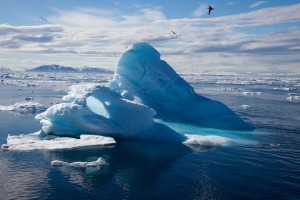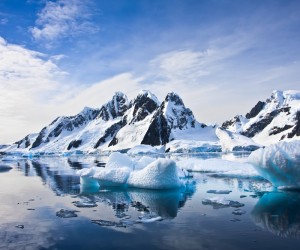Around three and a half years ago, two Canadian CF-18 fighter jets were scrambled from an air base in Quebec to intercept two Russian bombers on the edge of Canadian airspace hundreds of miles off the coast of Newfoundland. A similar incident occurred during President Obama’s 2009 trip to Ottawa, this time in the strategically important Arctic, with Russian warplanes flying close to Canadian airspace. The two incidents were nearly identical, and marked a steady deterioration in relations between some of the most powerful members of the Arctic Council. The incidents will have profound effects on what is essentially the last great territorial question on Earth: who owns the Arctic?
That question is becoming increasingly difficult to answer, as dialogue amongst the key powers —Russia, Canada, the US and the Baltic States—breaks down. Relations between Russia and the rest of the Arctic Council have floundered as a result of what most states see as a blatant and illegal invasion of Ukraine. Prime Minister Harper went so far as to compare Russia’s actions to those of Nazi Germany prior to the Second World War. NATO’s Secretary-General Anders Rasmussen also condemned Russia’s occupation but has yet to take any action. Even the neutral-minded Arctic Council members Sweden and Finland have expressed concern.

Putin, meanwhile, has settled into an attitude of both intransigence and incomprehension that bodes ill not just for the resolution of the situation in Ukraine, but also of that in the Arctic. Putin has stated that armed intervention in Ukraine would not be a violation of international law because its purpose would be to protect civilians from a regime brought to power by an illegitimate coup. But Russia’s position of Ukrainian sovereignty has less to do with protecting defenceless civilians than forwarding its own national interests.
Mr. Putin’s loose stance on sovereignty is the most recent threat to a peaceful resolution of persistent territorial disputes in the Arctic. Given his fluid use of the term in Ukraine, it is possible he may apply a similar principle in the Arctic, where borders are more uncertain and there is little resistance from a resident population. The Russian president’s willingness to use military occupation to gain de facto authority over territory is well documented, with incidents including the occupation of the splinter states South Ossetia and Abkhazia following the 2008 Russo-Georgia War.
Russia has become an increasingly assertive force in the international community, having recovered from the collapse of the USSR in 1991. Many see recent Russian foreign policy as a revival of traditional expansionism. Retaking at least part of the lost Ukraine certainly seems to be the Kremlin’s goal throughout the past few weeks. Unfortunately, conflict between Russia and the other northern powers will have negative consequences in the Arctic. If Mr. Putin is beaten in more traditional spheres (Ukraine), he may hope to compensate by making greater claims in the Arctic. At the very least it will weaken the spirit of cooperation necessary for a mutually satisfactory resolution.
That being said, many northern states, including Canada, have contributed to the threat of Arctic militarization. “The Northern Strategy”has been a pillar of the Conservative government’s foreign policy since it came to power in 2006. Canada has consistently treated the issue of the Northwest Passage —a strategically important and potentially lucrative waterway—as an internal issue. This attitude threatens the spirit of negotiation and moderation that the Arctic Council has attempted to cultivate. The Canadian government has been increasingly bold in its claim to sovereignty, both in speech and in action, promising massive investment in Arctic infrastructure and military kit. It has also spoken out against the inclusion of non-Arctic states in the Arctic Council, most likely because this would strengthen an argument for an internationalization of the Arctic.
The Canadian government’s actions have widespread support in national public opinion, especially compared to other Council members. Concerning the dispute with the US in the Beaufort Sea, for example, claiming sovereignty rights has significantly more support in Canada than south of the border.
Tensions between the major powers in the Arctic region can only exacerbate the uncertainty and ambiguity that already surrounds the region. Though the Arctic question has yet to erupt into real international crisis, it does not mean the possibility does not exist. Even during periods of relative co-operation between the northern powers, the possibility of escalation exists. Canada conducts regular military manoeuvres in the region during the summer and Russia’s probing of Canadian airspace is well-recorded. There is plenty of room for error. Increasing conflict outside of the Arctic may have a similar affect. Any conflict could easily spillover into the Arctic, with nations attempting to offset losses in one area with gains in another.
This issue will only gain importance in time, as the fundamental question of ownership still has no answer. With so many resources at stake, the stage is set for major confrontation. In 2007 Russia planted a flag on the ocean floor beneath the North Pole, a symbolic declaration of sovereignty. It remains to be seen what will happen if another state has a similar idea.




